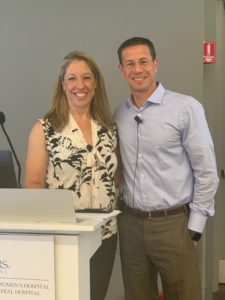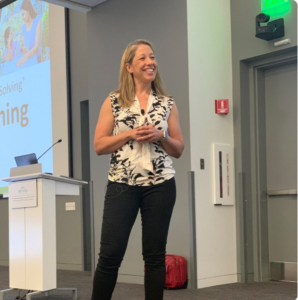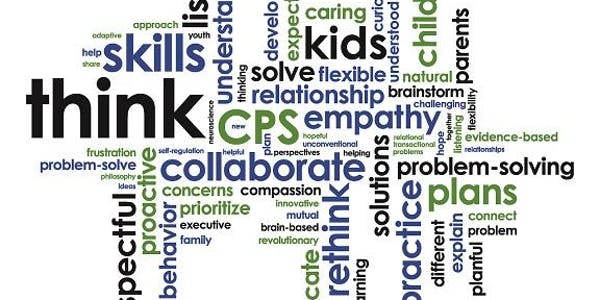By Tre Gabriel
Flawless Intern
There are more than 15 million kids with social, emotional, and behavioral challenges in North America alone. Most are misunder stood and being ineffectively disciplined. I learned this recently, when I attended a Tier 1 training for “Think:Kids in Collaborative Problem Solving,” led by Think:Kids Director & Founder, Dr. Stuart Ablon and Think:Kids trainer, Heather Johnson, LCSW. Think:Kids is a program in the Department of Psychiatry at Massachusetts General Hospital that trains parents, teachers, clinicians and adults working with youth in Collaborative Problem Solving® (CPS), a revolutionary, evidence-based approach to helping children with behavioral challenges. Instead of viewing these children as “lazy” or “unmotivated,” CPS recognizes that these kids simply require a different approach—at home and in school.
stood and being ineffectively disciplined. I learned this recently, when I attended a Tier 1 training for “Think:Kids in Collaborative Problem Solving,” led by Think:Kids Director & Founder, Dr. Stuart Ablon and Think:Kids trainer, Heather Johnson, LCSW. Think:Kids is a program in the Department of Psychiatry at Massachusetts General Hospital that trains parents, teachers, clinicians and adults working with youth in Collaborative Problem Solving® (CPS), a revolutionary, evidence-based approach to helping children with behavioral challenges. Instead of viewing these children as “lazy” or “unmotivated,” CPS recognizes that these kids simply require a different approach—at home and in school.
CPS offers participants an alternative model for understanding challenging (and often exasperating) behavior in children: that kids often lack the skill—not the will—to behave differently. Unlike traditional disciplinary approaches, CPS avoids the use of control and reward-based discipline, in favor of teaching kids and parents skills that tackle challenging behaviors and fosters trusting relationships.
This three-day training was loaded with informative strategies and techniques. When I learned that the vast majority of people in attendance worked with students, I felt heartened that this training was reaching the necessary audience. Here are some of my key takeaways from each day:
Day 1
“Kids do well if they can,” is a phrase I heard repeated throughout the training. When a kid is struggling to behave appropriately in various settings, we should not be so quick to blame that child or assume that the student enjoys doing poorly in school, for instance. If a child has the skill to solve the problem, that child will usually adapt their behavior. Challenging behaviors in a child are likewise expressions of skill deficits in problem-solving. It is important to remember: if a child is struggling, it is because something is in their way and they need help removing that obstacle. So, instead of assuming that kids do well when they want to, let’s remember that actually kids do well if they can. Children with challenging behavior lack the skill, not the will.
Day 2
We were introduced to three ways ways of intervening: Plan A – by imposing adult will, Plan B – by solving the problem collaboratively, or Plan C – by simply dropping the issue altogether. By imposing adult will, the adult will win the battle but not the war, and the child’s problematic behavior will likely recur. Dropping the problem altogether might feel like a temporary victory for the child, who avoids getting in trouble. Collaboratively working together to solve the problem, on the other hand, will reduce challenging behaviors in the short and long term, solve chronic problems, build skills, and communicate trust. Plan B is the goal but there are also situations where the other two methods are necessary, especially in conflicts of high-intensity that require immediate de-escalation, or if there is a safety risk. 
Day 3
On the last day, Heather Johnson introduced an interesting teaching strategy that left a real impression on me. The final session was an interactive experience that allowed us to practice the problem-solving strategies we had been learning. We were encouraged to put our skills to the test through role play. We took turns acting out the roles of challenging youth and authoritative adult. Dr. Ablon encouraged the room to regularly practice what we had learned, using the Collaborative Problem Solving approach, and invited us to attend the future Tier 2 training to learn more strategies.
I truly recommend this training to anyone who works with or is raising children. The next opportunity to be trained in Tier 1 Collaborative Problem Solving is January 15-17th, 2020. Other future training dates are posted on the Think:Kids website at www.thinkkids.org
I hope to see you there!
*
You can find Think:Kids on Twitter and Facebook.







